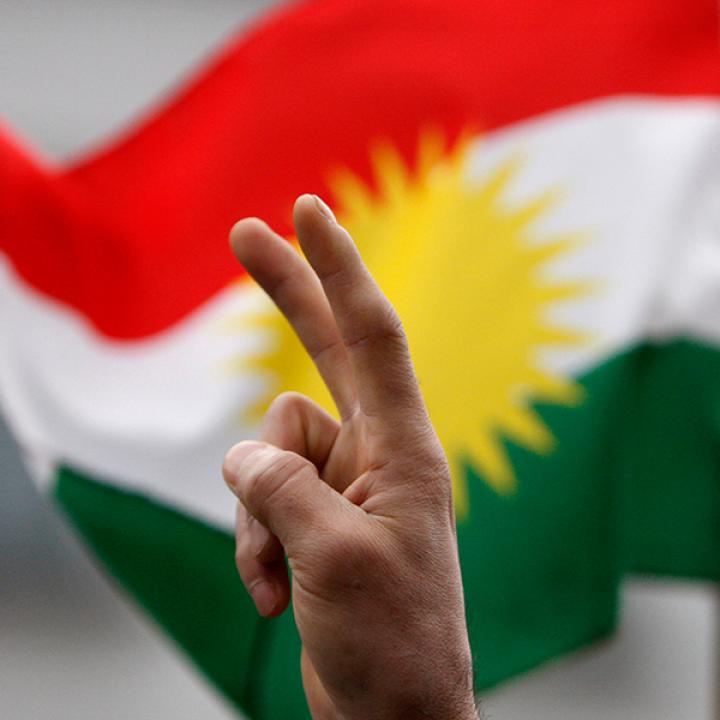
- Policy Analysis
- Fikra Forum
For the Kurds, Being the Good Guys Isn’t Enough

September 28, 2016
In a bold state-like move, the Kurdish Democratic Union Party ( PYD) conducted censuses in the Rojava canton of Jazira. The government of the autonomous region seems to realize that being the “good guys” on the battlefield is not enough. To be legitimate rulers, they need to govern. And they must do it well.
As reliable on-the-ground partners to the United States, the Kurdish forces in Syria, like their brethren in Iraq, have gained a reputation as fierce fighters and a bulwark against the Islamic State (also called ISIS, ISIL, or Daesh). Indeed, the Kurdish fighters have often been portrayed as foot soldiers for the United States in Syria. In that regard, not only did the People’s Protection Units (YPG) and Peshmerga defend the Kurdish population, they are also slated to be instrumental in the U.S.-led coalition efforts to roll back ISIS from Raqqa and Mosul. Such a level of U.S.-Kurdish cooperation and coordination is unprecedented.
Kurdish victories in the battlefield have also emboldened the century-old ambitions for greater political autonomy. Indeed, some have started celebrating the coming of the “Kurdish moment,” especially in Iraqi Kurdistan where the Kurdistan Regional Government (KRG) president Masoud Barzani is planning a referendum on Kurdish independence. The PYD seeks to translate its military role in the anti-ISIS coalition into broader international political support.
However, if the goal is international recognition and legitimacy, military victories are not enough. Battlefield achievements must be followed by building accountable government institutions and processes that guarantee political inclusiveness and economic opportunities. Let’s not forget that much of authoritarianism and state failure in the Middle East stem from the failure of national modernization champions and revolutionaries (e.g. Saddam, Qadhafi) to create institutions that guarantee rule of law, economic opportunity, and an inclusive and competitive polity. Another trap is sequencing: promising good governance only after ISIS is defeated. This is the classic alibi of Arab authoritarianism—that democracy will come only after Israel is defeated.
Legitimate rule from military victories would be short-lived if not buttressed through democratic processes and opportunities for economic prosperity. Although security in Kurdistan is a God-send in an otherwise violent Syria and Iraq, stability is closely linked to economic opportunity. The youth will rally around the flag, for now. But eventually, they need economic opportunities. The process of transitioning from a war economy into a vibrant, diversified economy starts now. There is oil, arable lands and fresh water in Rojava. These natural resources can be a curse unless managed efficiently. Their development also requires foreign investment. Youth energy is best channeled through the private sector and entrepreneurship, not the socialist models followed by the Baath Party in Iraq and Syria. There have been no indicators, however, that the PYD is willing to abandon its economic ideology in favor of economic pragmatism.
If the experience of the Kurdistan Regional Government (KRG) in Iraq bears any lessons for Rojava, it is the necessity of building efficient public services and economic institutions. Despite having charismatic leaders with revolutionary legitimacy, the KRG is in jeopardy of undoing not so much from external aggression as from internal fragmentation and economic failure. In the absence of conflict resolution institutions and processes, like the parliament, Iraqi Kurds are divided over political and economic interests despite the presence of a common enemy. Similarly, the Rojava economy will depend on good relations with its neighbors.
The favorable attention that Kurds in Iraq and Syria are receiving thanks to their instrumental role in combatting ISIS offers an opportunity for Kurds and to the international coalition to promote good governance in Kurdistan. Should the focus be exclusively on military victory, instability will ensue shortly after. Case in point: the Afghan Mujadeen after the withdrawal of USSR. For the Kurdish administrations, who have been ruling and governing Kurds since 1992 in the KRG and 2013 in Syria, it is necessary to cash in on U.S. and international support to build a strong governance base. Unfortunately, the reverse has been the tendency for ruling Kurdish parties—to legitimize their rule through international military support rather than accountable governance. In the KRG Barzani remains the region’s president in the midst of a legal vacuum while his presidency is legitimized by leading the war effort and receptions at foreign capitals. But that has not saved the KRG from international criticism when a journalist is killed or a political party office is attacked.
As in Iraqi Kurdistan, the cantons in Rojava have become home not only to Kurds, but to Arabs, Turkmen, and Christians as well. It is imperative that the emerging Rojava administration is inclusive of ethnic and religious minorities. Moreover, despite the popularity and broad support that the PYD enjoys, there needs to be political freedom for other groups to assemble and for the media to speak. When the chivalry of war wears on, the AK47 loses to rule of law as the paramount source of legitimacy.
Bilal Wahab is a Soref fellow at The Washington Institute, focusing on governance in Iraq and Iraqi Kurdistan. This item was originally published on the Fikra Forum website.
Fikra Forum



